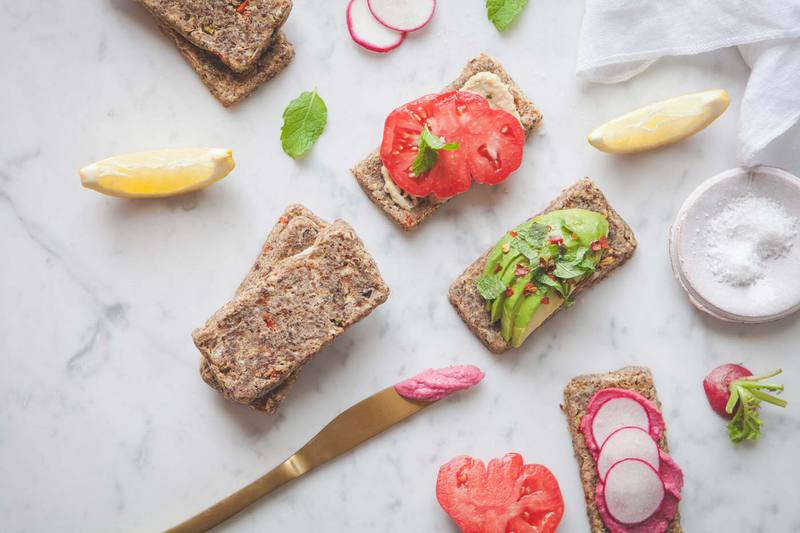15 Prebiotic Foods to Strengthen your Immune System
 Prebiotics are likely already in the foods you enjoy, and they're a great way to naturally increase healthy gut flora. They work wonders for supporting digestion, reducing allergies, resisting infections, increasing mineral absorption, and supporting the immune system.
Prebiotics are likely already in the foods you enjoy, and they're a great way to naturally increase healthy gut flora. They work wonders for supporting digestion, reducing allergies, resisting infections, increasing mineral absorption, and supporting the immune system. Fortunately there's many possible ways to up your prebiotic intake, including eating wholesome foods which can taste good while supporting health.
Top 15 Prebiotic Foods
1. Banana: Eating a raw banana is not only rich in potassium which can aid workouts and prevent muscle cramping, but it's also a great prebiotic source. This is often easily digested, readily available, cheap, and delicious.2. Raw Chicory Root: This is the top food source which contains the most amount of prebiotic support by weight. You may have never heard of it but it's often found in health food stores, and it's sometimes included in things like cereal and bread. This can be eaten raw or cooked, and it's often described as having a coffee like taste. Chicory root is most often used in the Southern part of the US, where it's used as caffeine-less version of coffee.
3. Garlic: When uncooked garlic has a rich amount of nutrients and a versatility which makes it easy to add to dishes. It's great in things like pasta, hummus, stir fry's, or any dish which needs a touch of zest. There are even some versions of garlic which are offered in supplement form for people who aren't fans of the taste.
4. Raw Onion: Before its cooked onions is a rich source of natural sulfur mineral. They still offer prebiotic support when cooked, but it does retain more nutrients if uncooked. The versatility of onions make it a great addition to foods as they can be sauteed, caramelized, added to soups, or even eaten raw such as in a salad or burger.
5. Baked Wheat Flour: A fresh loaf of bread that uses wheat flour can offer trace nutrients, protein, rich carbohydrates and prebiotic support. It's also likely already in your local grocery store.
6. Jicama: This is sometimes added to fruit salad in parts of Mexico and although it's a tuberous root, it has a crunch and versatility which makes it easy to eat raw. The outside is peeled off to expose a white substance that looks similar to a white potato. It's a rich source of trace vitamins and minerals, and all with a high amount of fiber and low sugar.
7. Dandelion Greens: A species in the family of dandelions which is rich in vitamins and minerals. This is sometimes made into a coffee, wine, or a traditional form of root beer. It's also been used as a medicinal plant which acts as a natural diuretic.
8. Raw Asparagus: Typically fermented in its raw form, this vegetable is low in calories and rich in fiber and vitamins A, C, and B-6.This can also be cooked which can increase the amount of antioxidants which are absorbed.
9. Leeks: Widely considered a versatile type of onion with a pleasantly sweet taste. This is often used as a garnish or as a subtle touch of flavor in things like pasta, potato salad, soups, or regular salads.
10. Jerusalem artichoke: Root vegetable that is rich in inulin which acts as a healthy prebiotic. This is sometimes fermented and it's even been used as a kind of potato substitute. It also has rich amounts of iron, phosphorus, and thiamine.
11. Wheat Bran: Nutrient rich and sometimes added to cereal, breads, and even smoothies. This has many vitamins and minerals totaling over 100 different kinds.
12. Gum Arabic: You likely won't fin this in its pure form, but this sap extract is often used to thicken and stabilize foods. This is fairly cheap to add and it's often easily digested by the body.
13. Apple: All species of apples offer a sweet treat as well as natural prebiotics. They can also stabilize blood sugar and they provide a good source of fiber.
14. Honey: The only known food which does not spoil, this sweetener is rich in trace nutrients and it is readily available. This can work as a substitute for anything that requires sugar, and it's typically well-absorbed.
15. Oats: A cheap and easy to make food which has rich amounts of what is known as beta-glucan, a type of fiber which is great for improving digestion. Since the human body does not make beta-glucans, oats offer a great way to keep intake steady.